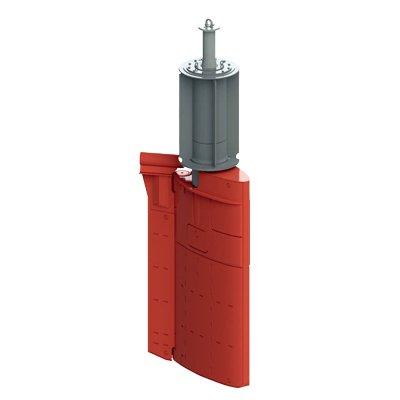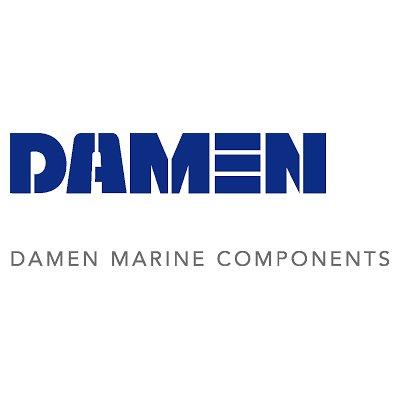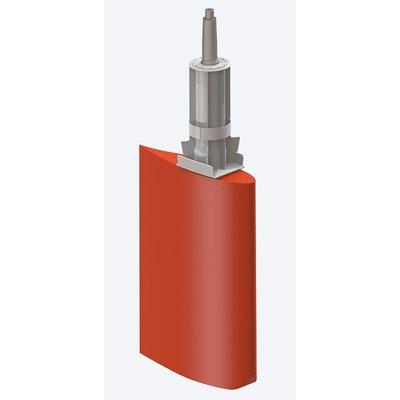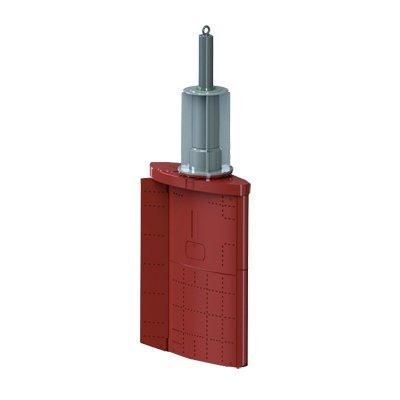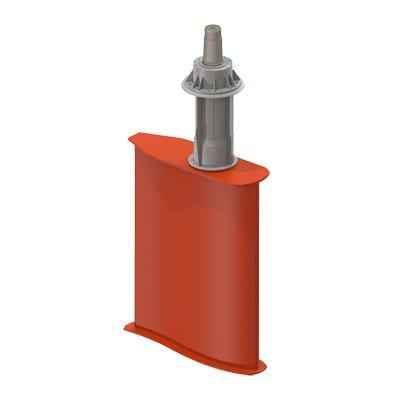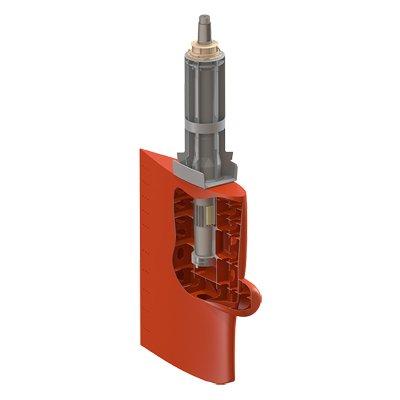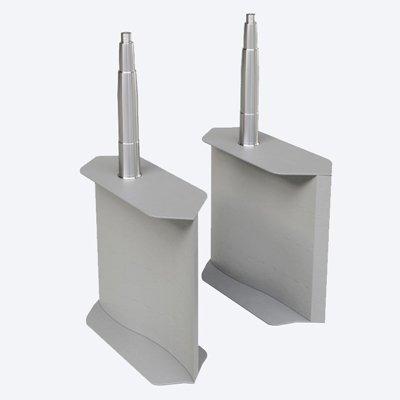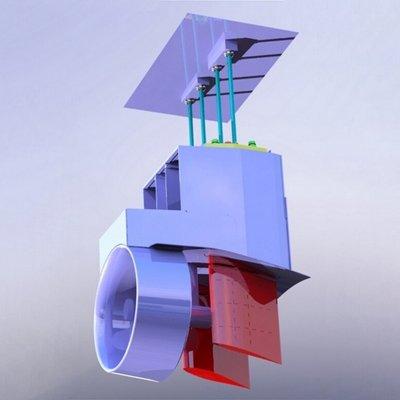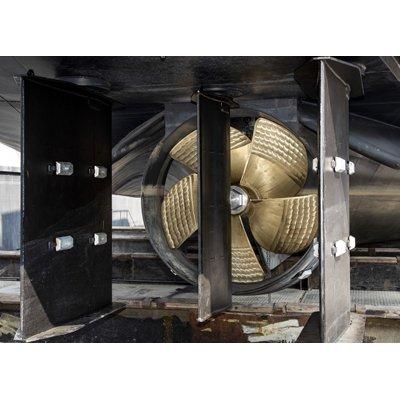Damen Marine Components Van der Velden® TIMON Rudder
Technical Specification
- Make: Damen Marine Components
- Model code: TIMON
- Type of rudder: Flap
- Main blade angle: 45º rudder angle + 45º flap angle = total 90º degrees
Excellent manoeuvring and course-keeping performance Low noise and vibration levels 45º rudder angle + 45º flap angle = total 90º Long service life Best suited to seagoing vessels in the medium to high speed range Other optional features: Heel bearing supportThis feature improves the performance of the rudder and is often applied to fishing vessels. It reduces the load in the neck bearing and it protects the propeller from fishing nets. With heel bearing support, a rudder can be designed with a slim profile. The distribution of rudder reaction forces in three points (rudder carrier, neck bearing and heel bearing), compared with the free hanging rudder, will increase the strength of the rudder, especially during trawler operations. Rudder trunk extensionTo extend the trunk into the rudder blade, the lower neck bearing is positioned as close as possible to the centre of the force that is acting on the rudder. This gives the opportunity to build large rudders. With trunk extension the stresses, from bending, in the rudder trunk and stock are reduced. Also, the reaction forces in the neck and carrier bearing are smaller. Optional Energy Saving Devices: Asymmetric Rudder Technology (ART™) Rudder bulb
Read more| Make | Damen Marine Components |
|---|---|
| Manufacturer | Damen Marine Components |
| Category | Ships' equipment and fittings>Rudders |
| Model code | TIMON |
| Type of rudder | Flap |
| Main blade angle | 45º rudder angle + 45º flap angle = total 90º degrees |
| Additional info |
Other optional features: Heel bearing support Rudder trunk extension Optional Energy Saving Devices:
|
Fleet planning as a strategic asset
Download